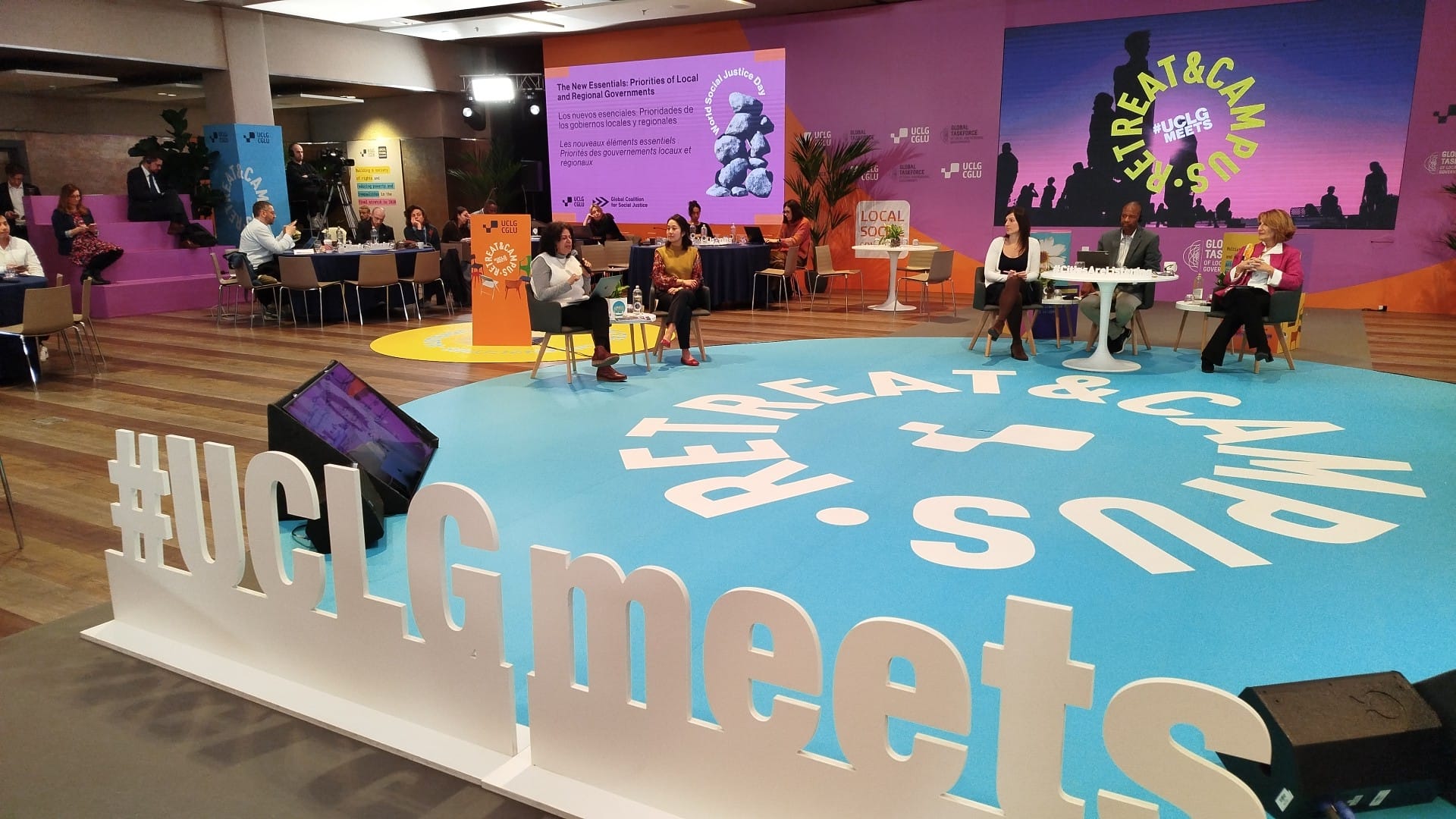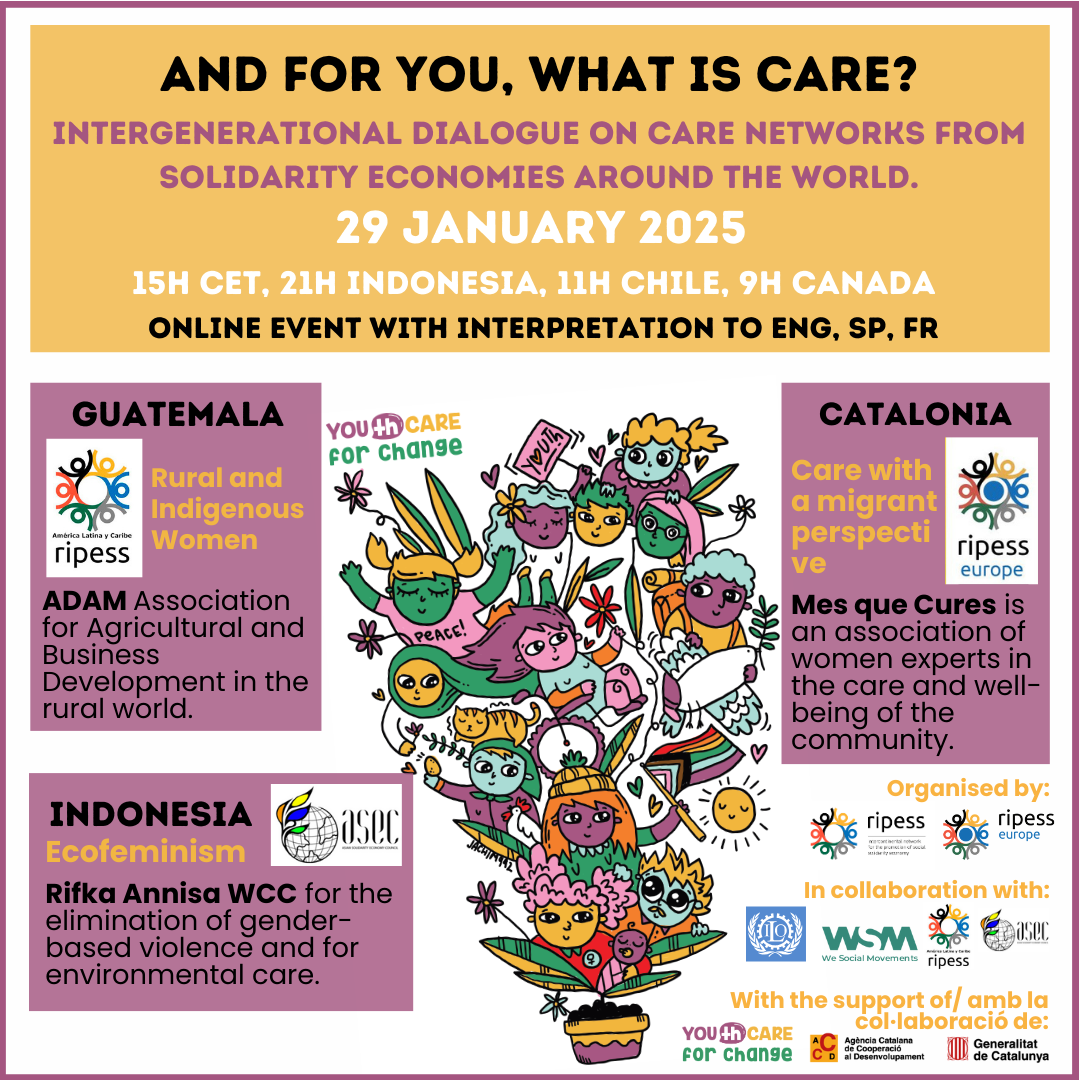This is an interview, with the newly elected co-coordinators Marcus Hill from the RIPESS North America United States, Judith Hitchman from the global Community Supported Agriculture network, URGENCI, and Shigeru Tanaka from ASEC/RIPESS Asia, Japan. They share their vision of SSE, their ambitions for RIPESS and their opinions about how their particular experience can benefit the network.
– You are the new joint coordinators of RIPESS. Can you share your vision of RIPESS?
Shigeru: I think that we all know that solidarity economy works in many places, in many localities, we have many success stories and so we know it works on the micro-scale. But we need to take it to the international stage in order to break through barriers of scale. And I think that this is the added value of RIPESS. Organizations that come together as a network to show that SSE is something that not only works on a smaller scale, but also transforms whole societies. The role of RIPESS Intercontinental is to leverage this. Or at least this is what I would like to reinforce in the next couple of years.
Judith: The world is in a state of crisis, we have a global pandemic that is leading to what is probably the worst economic crisis in the last hundred years and we have the climate crisis that is being swept under the carpet. All these crises have been caused by the neoliberal system. The neoliberal system cannot solve these crises. Green-washing or blue-washing solutions or white-washing solutions or whatever color you want, cannot fix it. The fix comes from solidarity economics, from grassroots’ led initiatives. So this is the voice we need to carry very loudly into the institutions. And we are starting to gain a certain recognition.
SEE is intersectional by nature; we need to work with other social movements in order to achieve real societal change, because the alternative is the end of us and the end of the planet.
Marcus: I think that we still have time to act. Across all our experiences, we have seen both micro- and macro-projects to know that there are some alternatives out there and to have a global, intercontinental organization that can articulate those possibilities and connections and to operate on different scales to see what is possible. We really need this right now, we need to establish these connections to establish solidarity. For example, when I am here at my home, working on a really small project I can see that internationally there is something very similar going on, and that’s empowering for us. We can do our little things here, we can connect, create a global network. We speak about solidarity, so let’s put it into action. I think that there is where the power and responsibility lie, and I sincerely hope that the joint committee will advance in this direction.
– What is your ambition for your joint coordination? How do you perceive your role?
Marcus: Definitively to put a focus on networking, to increase it.
Judith: I think that our role as joint coordinators is cross-cutting. I first joined the RIPESS Board as one of the representatives for Europe, but for the last 2 years the reason I became a member representing Food Sovereignty and agroecology which was easy for me; but this new role (as joint RIPESS co-ordinator) means moving to a much deeper promotion of all the SSE concerns, which will also to some extent be a learning curve for me. My role is specifically linked to advocacy and overall aspects of SSE, something that I have been working on for the last 25-30 years, so promoting it as a viable option worldwide would not be a project, but the overarching project.
Shigeru: On a more pragmatic level, our role is to secure the infrastructure that can keep RIPESS projects and ambitions alive. It is the whole Board’s role, but I think that as joint coordinators we have a key role to play in that.
– For the first time, RIPESS has a joint co-ordination team, marked by gender, age and cultural diversity. How do you think this outcome will impact your style of coordination?
Shigeru: I come from a country where education is basically going to a grad school and being able to give the correct answer to the exam question. It put us in a mindset where people tend to think that there is this one, best, correct answer for everything. But I think that the beauty of solidarity economy is that there are many correct answers and many ways to go about things. So for me and many people working on this subject, embracing SSE is a very liberating experience. You understand that you do not have to lock yourself into what is supposed to be right or wrong, what you should or shouldn’t do. It relieves us from a terrible pressure. And I want the Board to work in the same way that liberates people who work with RIPESS.
Marcus: In the US we have been in a moment of crisis for quite a long time. The base of this country, the global economy is well known for its exploitation, and the US is very racial and very classist. We speak here about change and improvement, but these ideas are still anchored in neo-liberalism; and in neo- liberalism nobody challenges the status quo. So we limit ourselves to voting every four years.
We need better alternatives, we need better systems and infrastructure that are democratic, based on participation, accountability, transparency, equity and sustainability. And RIPESS’ ambition is to offer these alternatives. So my work is basically to connect my local work to global contexts and solutions.
Judith: Both the solidarity economy and the food sovereignty movements are born in the 1990s and I have been involved in both more or less since the beginning. The Food Sovereignty Movement is probably more recognized and better developed than SSE at the global level, but there are many thousands of millions of people involved all over the world. I have spent the last 15 years trying to bridge these two movements because I don’t think that we can achieve food sovereignty without making this essential change to solidarity economy.
Moreover, I have the honor of being a global leader in my own movement that has around 3 million members, so this gives me some hands-on experience in convivial teamwork that I think is essential for effective work.
And I am also very Irish in my way of doing things and in my culture; this means that it is not about your qualification, or who you are socially, or your age. It is about your affinity to work together, to do things together and share ideas. And I think our co-ordination represents an incredible cultural, gender, age and racial diversity. I think that we represent a lot of different challenges that our societies have to face in our three separate ways. So working together can only be a huge bunch of fun for me. It has to be fun, otherwise I cannot do it!







[…] This is an interview, with the newly elected co-coordinators Marcus Hill from the RIPESS North America United States, Judith Hitchman from the global Community Supported Agriculture network, URGENCI, and Shigeru Tanaka from ASEC/RIPESS Asia, Japan. They share their vision of SSE, their ambitions for RIPESS and their opinions about how their particular experience can benefit the network : here […]